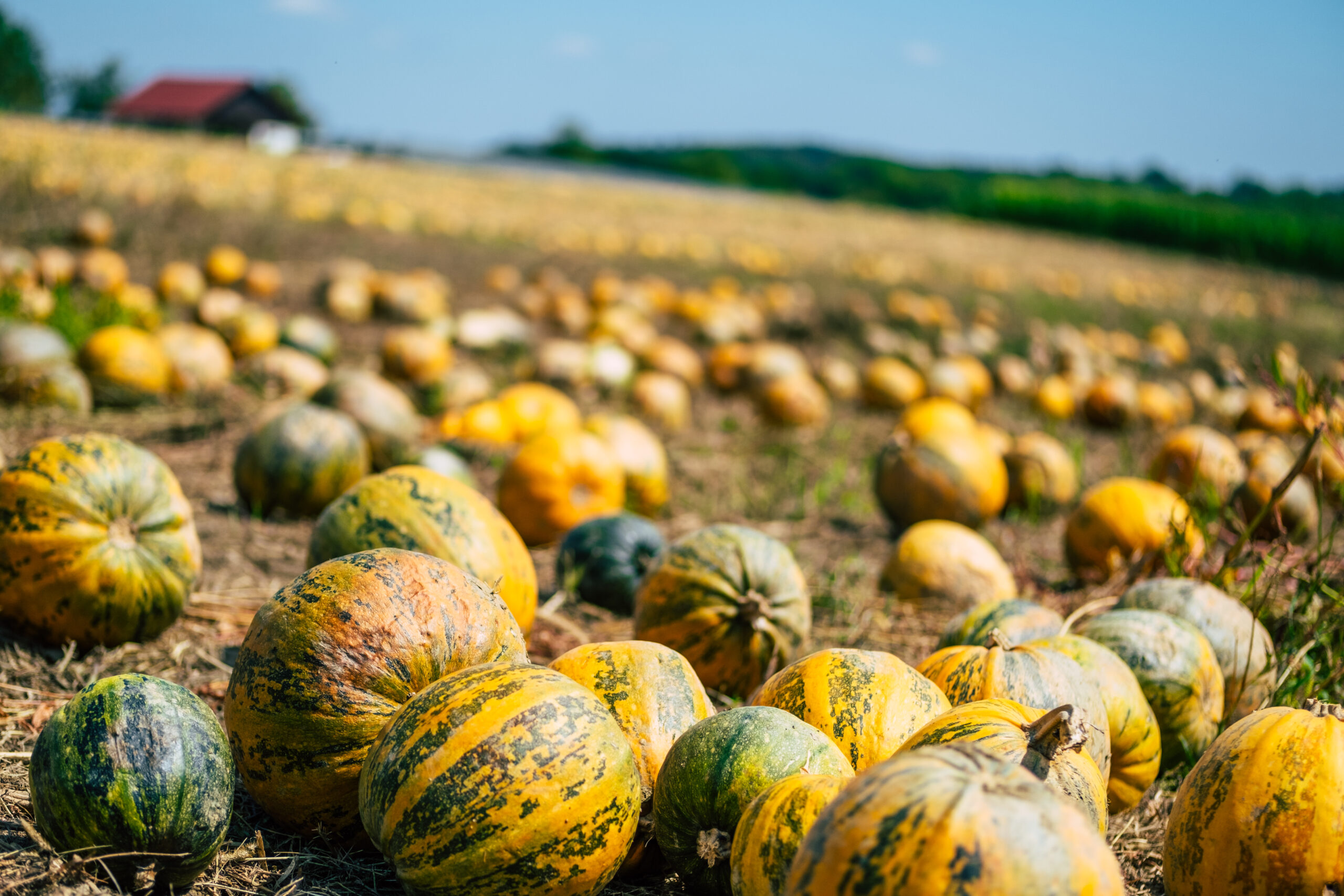Drought causes problems for the Styrian oil pumpkin
A research team from the Department of Environment & Biodiversity at the Paris Lodron University of Salzburg has shown that drought has negative effects on the flowers and on flower visits by pollinators in the Styrian oil pumpkin.
The seed oil from the Styrian oil pumpkin is valued as a delicacy not only in Austria, but in many parts of the world. Austria plays an important role in the worldwide production of pumpkin seed oil. In recent decades, several large yield losses have been recorded, and in addition to pathogens, drought also played a role, as is true for 2023. Until now, it was unclear how drought exactly affects the oil pumpkin.
The seeds of the oil pumpkin develop in the fruit. The fruits in turn develop from the female flowers, but only if they have previously been pollinated with pollen from male flowers. Insects that visit both male and female flowers are essential for the pollination of the oil pumpkin. In Austria, bees such as bumblebees and the western honeybee are the most important pollinators. Attracted by the conspicuous orange color and / or the strong flower scent, they visit the flowers for their nectar, which is available in large quantities.
The research team consisting of Monica Barman (meanwhile working at the Leibniz Institute of Vegetable and Ornamental Crops in Großbeeren), Raimund Tenhaken and Stefan Dötterl carried out a drought experiment in the greenhouses of the Botanical Garden of the University of Salzburg to test how drought affects plant growth, the production of female and male flowers, as well as their size, nectar and flower scent production. They also tested whether drought affects the attraction of pollinating bumblebees.
It has been shown that drought has direct and indirect negative effects on the oil pumpkin. Only the flower scents are unaffected by drought. As a direct negative consequence, the plants grow worse and produce 30% fewer male flowers and almost no female flowers. If formed, both female and male flowers are half as small and produce no or only little nectar. These negative effects ultimately influence pollinating bumblebees, which visit flowers of stressed plants less frequently. These findings, which were published in the journal New Phytologist, explain overall why drought has a negative effect on the yield of the Styrian oil pumpkin. They also show that although the Styrian oil pumpkin is considered drought-resistant, it has problems with drought in terms of flowers and pollination.
Study in New Phytologist: “Negative and sex-specific effects of drought on flower production, resources and pollinator visitation, but not on floral scent in monoecious Cucurbita pepo”: https://nph.onlinelibrary.wiley.com/doi/10.1111/nph.20016





